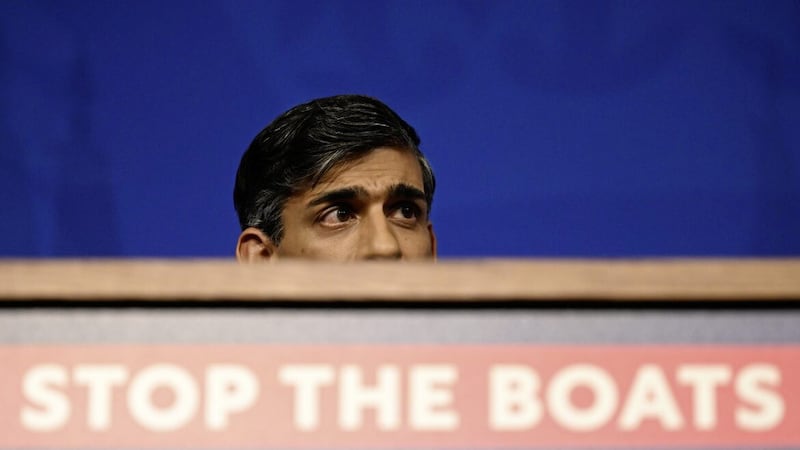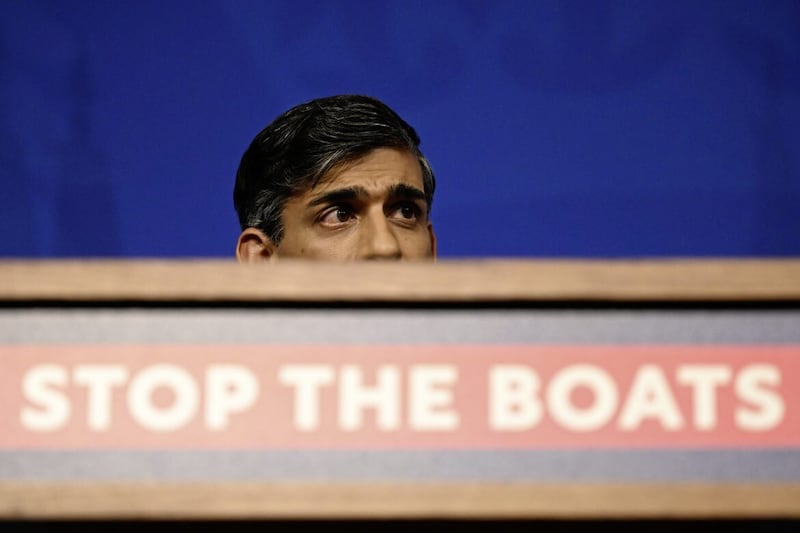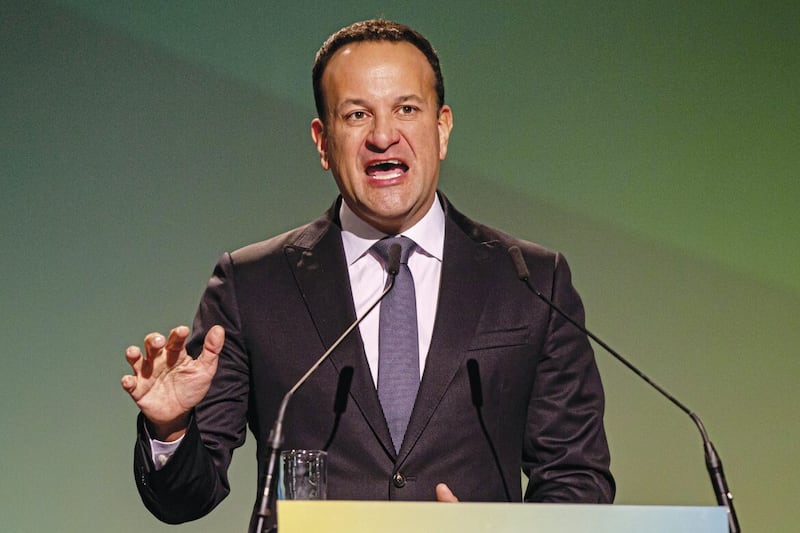YOU would be forgiven for thinking that the Tory government would say “OK, well that’s that then” when the Supreme Court in London ruled that its scheme to deport asylum seekers to Rwanda was unlawful.
But perfidy comes in many forms and, as we know all too well in this part of the world, when the courts rule the actions of government to be ultra vires, the British government have never been slow about making new law to get around this.
Within hours of the Supreme Court judgment being announced, Prime Minister Rishi Sunak presided over a hastily-arranged press conference where he stated that he would consider introducing legislation which would end what he called the “merry-go-round” of legal challenges by setting out in law that Rwanda is a safe country.
Given that many European countries, including Ireland, have granted refugee status to people fleeing Rwanda, that is a stretch.
Read more:
- Brian Feeney: Cornered Sunak has no Plan B after Rwanda debacle
- Why was Rwanda policy blocked by courts and what is Sunak's Plan B?
- Pantomime baddie Braverman sacked after shameless Trumpian pitch to dregs of British society – Mary Kelly
What Sunak’s proposals would likely involve is an international treaty with Rwanda, rather than the memorandum of understanding previously in place. That would require legislation in Westminster which would allow for disapplying the Human Rights Act, which gives effect in law to the European Convention on Human Rights.
Sunak is between a rock and a hard place as his party’s pledge to 'stop the boats' can’t be fulfilled without a work-around like this legislation, but any such proposal is likely to cause huge rifts in the Conservative Party, and would most likely be blocked in the Lords.
But this is not just an issue about immigration or asylum seekers. According to a report last week in the New York Times, the White House is keeping a keen eye on the possibility of the legislation progressing. According to a senior United States official quoted by the newspaper, the White House wants to ensure that any legislation in regards to Rwanda does not have the effect of undermining the Good Friday Agreement.
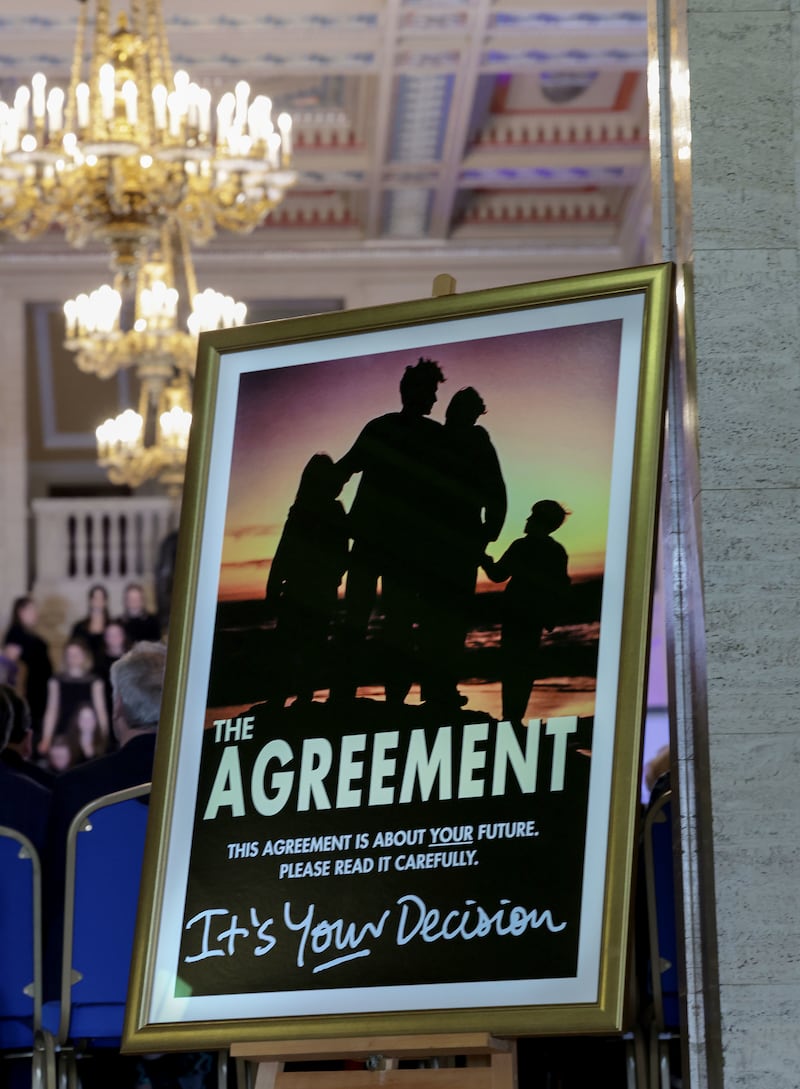
Any emergency legislation designed to push through the Rwanda policy would be enacted with the purpose of getting around legal challenges based upon the European Convention on Human Rights (ECHR). Whilst the scope of the legislation is not yet clear, one option could be that it would block the authority of the European Court of Human Rights in Strasbourg, which enforces the Convention.
The ECHR was drafted in the aftermath of World War II and it provides protection from human rights abuses such as torture, slavery and unlawful killing. It also guarantees freedom of speech, religious freedom and a right to privacy and family life and much more.
Read more:
- Peter Robinson can be Donaldson's lightning rod – Patricia Mac Bride
- Patricia Mac Bride: Harder than ever to find a place to call home
The Convention is an integral part of the peace process and is central to the Good Friday Agreement, which placed a duty on the British government to incorporate the ECHR into the laws of Northern Ireland so that people could challenge injustice through the courts if their rights were breached. This was achieved through the introduction of the Human Rights Act, which applies to everyone equally.
The United States is a key stakeholder in the peace process and President Biden’s visit to Belfast in April this year underscores the American view that the Good Friday Agreement is still viewed as one of its most significant foreign policy successes.
The appointment of James Cleverly, a more moderate figure, to replace Suella Braverman as Home Secretary might have given the White House some reassurance, particularly when he said he did not believe Britain would need to withdraw from the Convention.
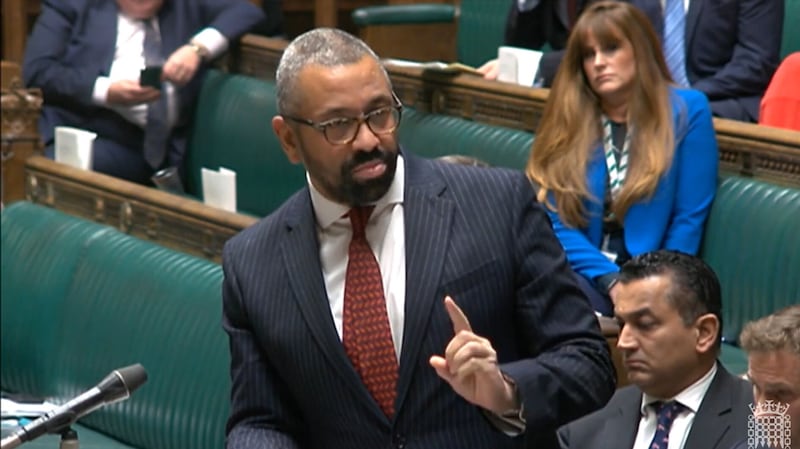
The lessons of the American political establishment standing firm on the potential negative impact of Brexit on the Good Friday Agreement must serve as a reference point for challenging anything which has the potential to unravel the foundations of the peace process.
It is worth remembering too following last week’s turmoil in Dublin, and previous anti-immigrant protests and hate crimes in the north, that the protection of human rights can only ever be universal.
If we don’t want to see our own rights eroded, or access to remedies taken away when our rights are breached, then we must also stand up for the rights of migrants and asylum seekers.
